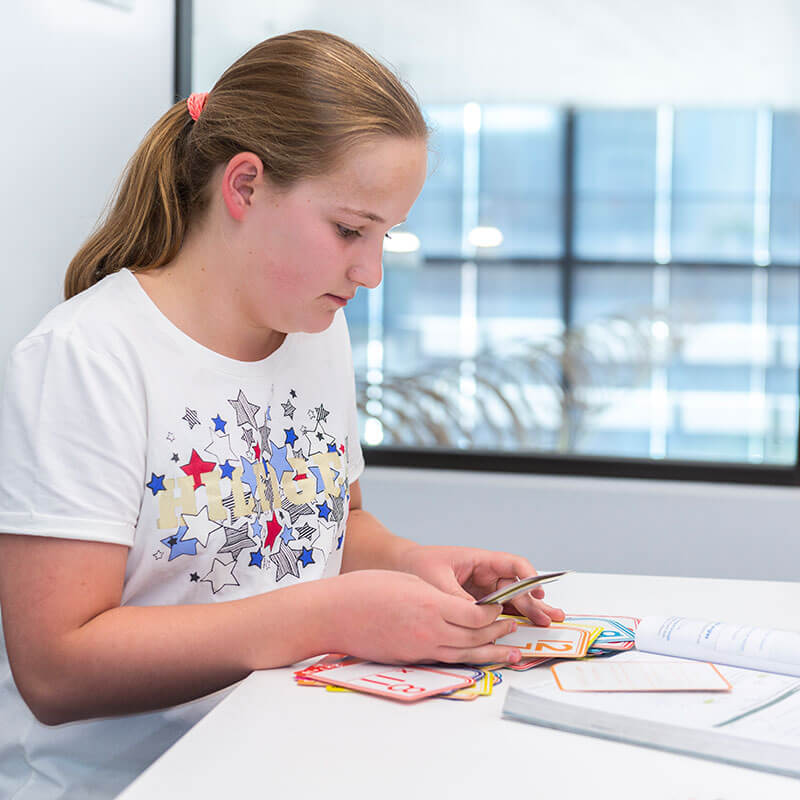There is no certainty or fool proof method to ensure your child achieves academic success. In our experience however, there are five things that you may do as a parent/care-giver to help foster your child’s lifelong love of learning and position their feet on the path towards excellence.
1. Read to your children
Studies have shown that children who are regularly read to by their care-giver have greater capacity for concentration, higher chance of academic success, improved language skills, improved imagination and creativity, and are more bonded to the care-giver. Furthermore, it can be fun! The trick is finding a story or series of books that both you and your child genuinely enjoy. Some popular authors include Mem Fox, Lynley Dodd, Graeme Base and Roald Dahl. If your child is an emerging reader, try taking turns reading words, sentences, then gradually progress to paragraphs and pages. When children are reading entire chapters they will be more engaged and interested in the story flow.
2. Device Down
Dependence on our mobile phones is damaging our family and relationship dynamics. Don’t just take our word for it! Behavioural scientists observing this phenomenon have coined the phrase “phubbing”, referring to those who are on their phones snubbing those around them. Make it a family rule – devices down when we are talking. Encourage eye contact, and if your child likes cuddles, pull them in close. Listen, not to respond, instead to let them just chatter away. Studies show that children whose parents are engaged listeners have improved language skills, a stronger sense of identity, greater confidence with school work, better self control around mobile phone use, and improved parental-child relationships during the storm of the onset of puberty!
3. Your repetition becomes their reputation
When parents keep declaring that, “I hated maths!” or, “I couldn’t manage fractions!” children adopt this as their level also. When they experience the first hurdle or sense that a subject is difficult, their response may become; “Well, Mum hated Maths, so I must be just like her!” Studies have shown that parents who speak positively about school work and are interested in what their children are learning remove the limits to their child’s achievements, instead creating a lifelong love of learning, improved confidence in academic ability and a greater sense of self accomplishment.
4. Make it fun!
Think about your least favourite task; how do you get it done? Chances are you will crank up the music, or reward yourself with a treat, or find a fun way to do it! The same principle applies for kids and homework. Learning can sometimes feel like a drag; who wants to sit still and work when there are forts to build, trees to climb, LEGO to build and FUN to be had! Bring the fun back into homework – think of some strategy games with dice, play snap with sight words, practise maths facts with Uno cards or while jumping on the trampoline. Studies have shown that kids learn easier when they are happy and laughing, and that the knowledge sticks!
5. Ch-Ch-Ch-Changes
As new methods of teaching evolve, parents are faced with a reality that the way they were taught is totally different to how kids are taught today. As a result, homework-help at home turns into confusion and conflict. Avoid the battle by watching, listening and not doing it “your way”. Though ‘your way’ may be quicker, your instruction may possibly cause greater confusion! Instead, touch base with your child’s teacher and ask how you can help support your child as the method they use is new for you. Teachers usually love some parental support around homework! The next step is to get your child to teach the concept to you. The repetition of the activity and the sense of achievement they obtain by teaching you the method motivates them to master more skills to show off their knowledge. I mean, what kid does not want to know more than their parents?
Despite following these five steps, you may find you have a child who needs guidance in a particular subject, like mathematics, or English. Or perhaps you need guidance for general homework assistance or study skills. You might like long-term support or need help around one particular education concept for a short period of time. Our tutors may help in all these scenarios. The benefit of one-to-one, tailored and specific tutoring where your child’s knowledge, attitude and self-belief are guided by a professional cannot be overestimated!

